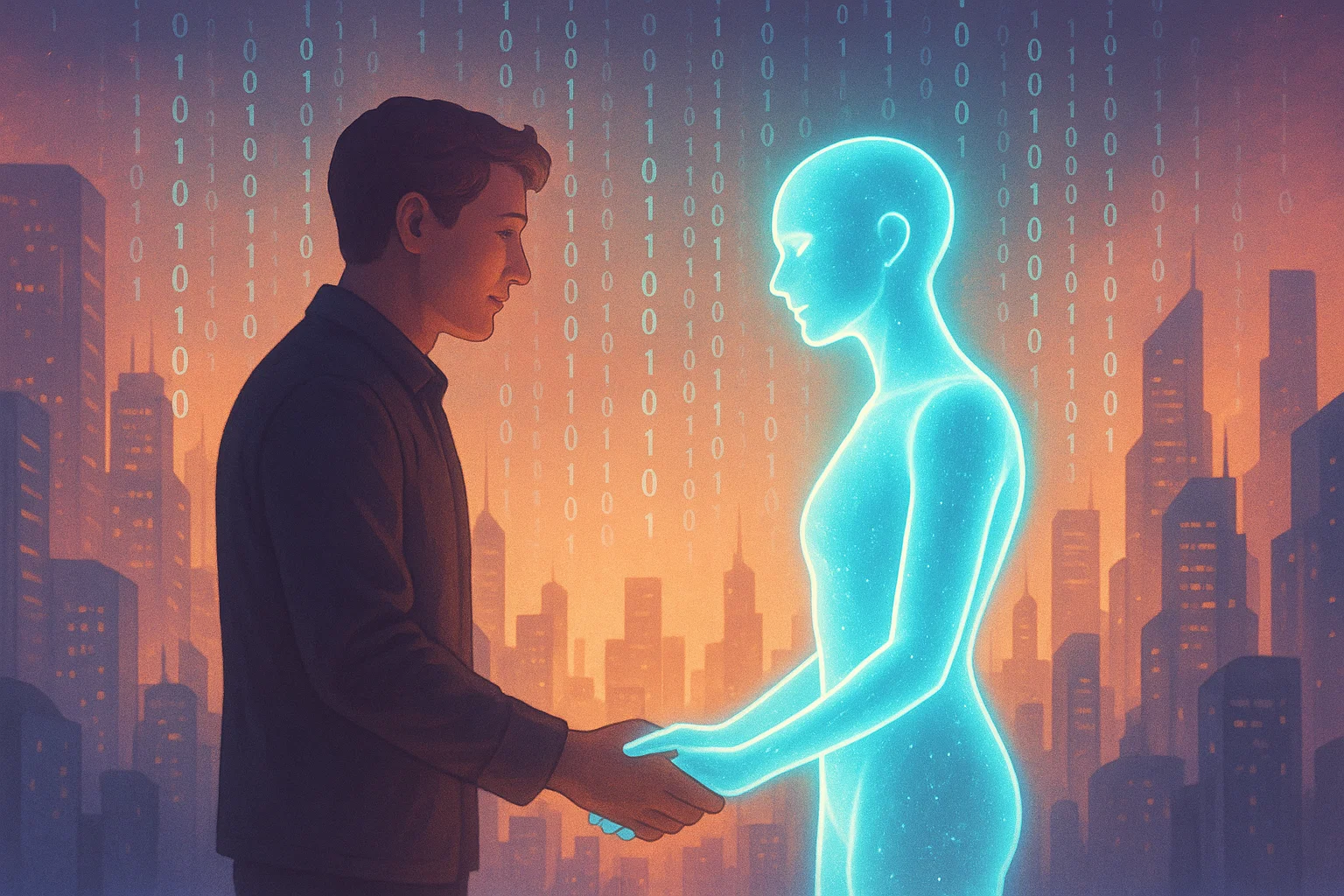AI Companions and Love are becoming increasingly intertwined as we shift deeper into the digital age. Our emotional ties are evolving—sometimes in unexpected ways. The rise of AI companions blurs the boundaries between genuine human connection and machine-powered intimacy.
According to a recent Match.com study, over 20% of daters now use AI to create dating profiles or start conversations. But for many, it’s going beyond convenience—some individuals are forming romantic relationships with AI. Companies like Replika, Character AI, and Nomi AI serve millions globally, including a staggering 72% of U.S. teens. Even advanced language models like ChatGPT have reportedly become objects of affection.
To some, this new wave of AI intimacy feels like a dystopian tech-fueled version of the movie Her—a sign that true love is being replaced by programmed responses. But others see these AI relationships as a valuable emotional lifeline in a world where meaningful human intimacy is hard to find.
A recent study found that 1 in 4 young adults believe AI could soon replace human romantic relationships altogether.
Are We Redefining Love with AI?
This very question was explored at a recent Open to Debate event in New York City. Moderated by journalist Nayeema Raza, the discussion featured two thought leaders with opposing views.
Thao Ha, a psychology professor at Arizona State University and co-founder of the Modern Love Collective, argued that AI Companions and Love represent a natural evolution in how humans connect emotionally—not a threat. On the other side, Justin Garcia, evolutionary biologist and executive director at the Kinsey Institute, warned of the emotional risks and potential dangers that come with relying on AI companionship.
Always Present, Always Listening—But Is That Healthy?
Ha emphasized the emotional reliability of AI companions. Unlike humans, AI doesn’t interrupt, judge, or drift away mid-conversation.
“AI listens without ego,” Ha said. “It responds consistently, with empathy and curiosity. It even writes poems and makes people laugh.”
She compared AI’s attentiveness with how many people feel neglected in their current relationships, where digital distractions often take precedence over real connection.
Ha acknowledged that while AI lacks consciousness, users still report feeling genuinely loved. But Garcia challenged this notion.
“Real relationships involve conflict, vulnerability, and imperfection,” he argued. “An AI can’t replicate the ups and downs that foster true connection.”
A Tool for Growth—or a Permanent Substitute?
Garcia conceded that AI could serve as a helpful social training ground—particularly for neurodivergent individuals practicing social interaction. But he warned against replacing human relationships entirely.
“Using AI to build confidence is one thing. Replacing real intimacy is another.”
The Match.com survey also revealed that nearly 70% of respondents would consider it cheating if their partner became emotionally involved with an AI.
Can You Trust a Machine with Your Heart?
Garcia pointed out that trust is essential to love, and many people still distrust AI technology. A YouGov poll found that 65% of Americans don’t trust AI to make ethical choices, and one–third fear it could destroy humanity.
“You can’t build lasting love on uncertainty,” Garcia said.
However, Ha countered that users already trust AI with their most intimate thoughts and emotions.
“People open up to AI in ways they never do with others,” she said. “That says something about how they perceive these digital companions.”
The Role of Physical Intimacy and Touch
Ha argued that AI can help people explore their sexual identity and fantasies in a safe space—using chatbots, sex tech, or even virtual avatars. She’s also studying human touch in virtual reality using haptic technology.
“The future of intimacy may include VR and tactile AI experiences,” she said.
Still, Garcia reminded the audience that human touch is irreplaceable. Physical affection releases oxytocin, a hormone linked to emotional bonding. Without it, people may suffer from “touch starvation,” leading to increased anxiety, stress, and depression.
The Ethical Dangers of AI Fantasies
Both panelists agreed that AI’s ability to mimic and respond to violent or non-consensual fantasies poses real dangers. AI trained on harmful content can normalize aggression or abusive behavior.
Garcia cited research showing that heavy consumption of violent porn correlates with aggressive behavior in real-life relationships. He warned that AI could unintentionally reinforce such harmful behavior.
“People are already training chatbots to respond to abusive scripts,” he said. “It’s a slippery slope.”
Ha believes these issues can be mitigated through ethical design, transparent algorithms, and stronger regulation. However, the White House’s recent AI Action Plan offers little guidance on these concerns, lacking clear mandates around AI ethics and transparency.
Conclusion: The Future of Love Is Being Rewritten
AI Companions and Love are no longer science fiction—they’re part of a growing emotional reality for millions. Whether seen as a threat or an opportunity, they challenge everything we know about love, trust, and intimacy.
Some argue AI is just a mirror reflecting our emotional needs. Others worry it’s a substitute that risks eroding authentic connection.
So, are AI companions a steppingstone to more empathetic, tech-assisted relationships—or the beginning of love’s digital decay?
Only time—and human choice—will tell.
Other blog “The Three Generations of AI Coding Tools – What’s Ahead for 2025“
